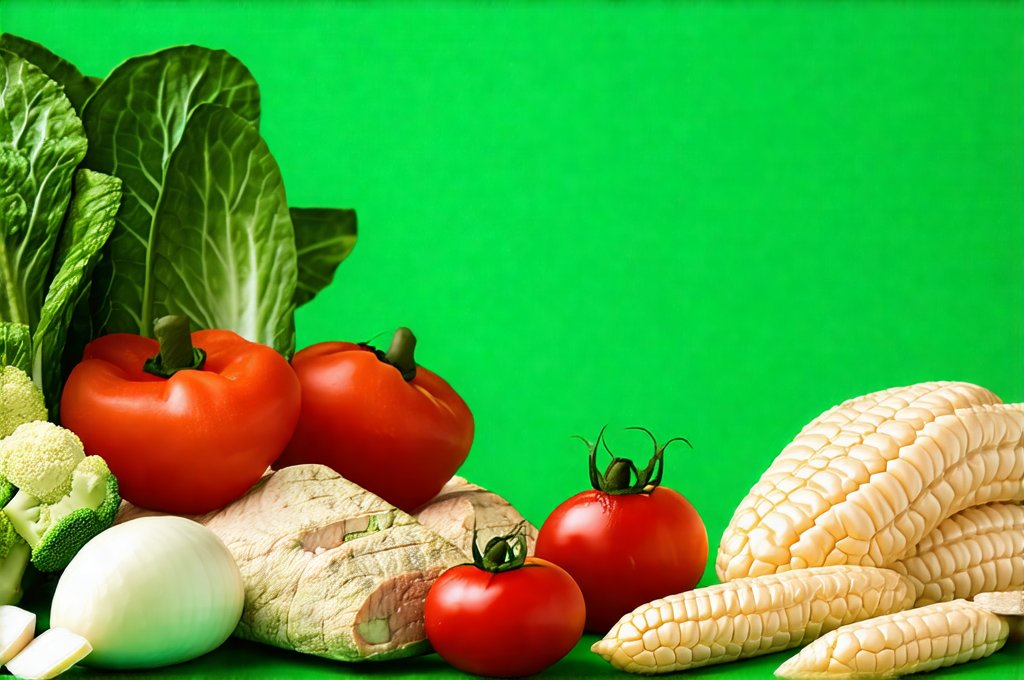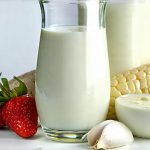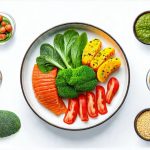Gastroesophageal Reflux Disease (GERD) affects millions globally, often requiring significant dietary adjustments to manage symptoms like heartburn, acid reflux, and indigestion. While many associate protein intake with meat and dairy, a plant-based approach can be incredibly effective – and even beneficial – for those managing GERD. The key lies in understanding which plant proteins are gentler on the digestive system and less likely to trigger reflux episodes. This isn’t about deprivation; it’s about making informed choices that support your health and well-being, allowing you to enjoy a satisfying and nourishing diet without exacerbating your GERD symptoms.
Many conventional dietary recommendations for GERD focus on avoiding certain foods – high fat items, citrus fruits, chocolate, caffeine – but often overlook the potential benefits of incorporating specific plant-based proteins that are naturally easier to digest and less acidic. Plant-based diets generally promote a more alkaline internal environment, which can help neutralize stomach acid and reduce the frequency of reflux. Furthermore, plants offer fiber, vitamins, and minerals essential for overall health, contributing to a stronger digestive system over time. This article will explore some of the best plant-based protein sources suitable for a GERD diet, focusing on digestibility, acidity levels, and practical ways to incorporate them into your meals. Considering a more structured approach to dietary changes? Explore how to build a rotation diet for safety and manage food sensitivities effectively.
Gentle Plant Proteins for Digestive Comfort
Certain plant proteins are inherently less likely to trigger GERD symptoms due to their composition and how our bodies process them. Foods high in fat content can relax the lower esophageal sphincter (LES), allowing stomach acid to flow back up; therefore, lean protein sources are preferable. Similarly, highly acidic foods can irritate the esophagus, intensifying heartburn. Choosing plant proteins that are naturally low in fat and acidity is a significant step toward managing GERD effectively. This doesn’t mean eliminating all fats or acids—it’s about mindful selection and portion control.
Consider hydrolyzed protein options when available; these have been partially broken down during processing, making them easier to digest for sensitive systems. Many plant-based protein powders now offer hydrolyzed versions of pea protein, brown rice protein, or soy protein isolate. Beyond the source itself, preparation methods matter too. Steaming, baking, or gentle sautéing are preferable to frying, which adds unnecessary fat and can worsen GERD symptoms. The goal is to nourish your body while minimizing digestive distress. Keeping a detailed record of what you eat can help identify patterns – consider best practices for a food journal for better tracking.
Finally, pay attention to portion sizes. Even the most easily digestible proteins can cause discomfort if consumed in excessive amounts. Smaller, more frequent meals often work better than large portions for individuals with GERD, reducing pressure on the stomach and LES. Combining plant-based proteins with other GERD-friendly foods like non-citrus fruits, vegetables (avoiding those known to trigger reflux – see below), and whole grains can create a balanced and satisfying meal that supports digestive health.
The Role of Fiber & Specific Plant Sources
Fiber plays a crucial role in managing GERD. Soluble fiber, found abundantly in oats, beans, and lentils, absorbs water, creating a softer stool and reducing constipation—a common trigger for increased abdominal pressure and reflux. Insoluble fiber adds bulk to the stool, promoting regularity. However, excessive fiber can also exacerbate symptoms for some individuals, so finding the right balance is key. Start slowly and gradually increase your intake to assess your tolerance.
Several plant-based proteins stand out as particularly GERD-friendly options:
- Oats: Not traditionally thought of as a protein source, oats contain about 5 grams of protein per half cup cooked and are rich in soluble fiber. Opt for steel-cut or rolled oats over instant varieties, which can be more processed.
- Lentils: These legumes offer around 18 grams of protein per cooked cup, along with a substantial amount of fiber. They’re incredibly versatile and can be used in soups, stews, salads, or as a meat substitute.
- Tofu (firm/extra-firm): Made from soybeans, tofu provides around 10 grams of protein per half cup. Choose firm or extra-firm varieties for better texture and digestibility. Water-packed tofu is preferable to those preserved in oil.
- Tempeh: Also soybean based but with a firmer texture than tofu, tempeh delivers around 20 grams of protein per half cup and contains probiotics that support gut health. If you’re dealing with dairy intolerance, explore best plant-based milks to complement your meals.
Navigating Potential Triggers & Food Combinations
Certain plant-based foods can trigger GERD symptoms in some individuals, even if they’re generally considered healthy. Common culprits include:
- Tomatoes and Tomato-Based Products: High acidity can irritate the esophagus.
- Citrus Fruits (oranges, grapefruit, lemons): Similar to tomatoes, their acidity can exacerbate heartburn.
- Chocolate: Contains compounds that relax the LES.
- Mint: Can also relax the LES, allowing acid reflux.
- Spicy Foods: Irritate the esophageal lining.
It’s vital to identify your personal triggers through careful observation and elimination diets if necessary. Keeping a food diary can be incredibly helpful in pinpointing which foods consistently cause symptoms. Food combinations can also play a role. For example, combining high-fat plant proteins with acidic vegetables might increase the likelihood of reflux. Those sensitive to acidity may find insight from best diet for citric acid sensitivity.
Incorporating Plant Proteins into Your Diet – Practical Tips
Making dietary changes doesn’t have to feel overwhelming. Start small and gradually incorporate more plant-based protein sources into your existing meals. Here are some practical tips:
- Breakfast: Swap out sugary cereals for oatmeal with a sprinkle of nuts and seeds (chia, flax). Add a scoop of plant-based protein powder to smoothies.
- Lunch: Build salads with lentils or chickpeas as the protein source. Use tofu in stir-fries or wraps. Choose whole-grain bread for sandwiches filled with hummus and vegetables.
- Dinner: Replace meat with tempeh in tacos or chili. Prepare lentil soup or stew. Bake tofu with GERD-friendly seasonings (herbs, spices – avoid excessive pepper).
Understanding Protein Powder Options & Considerations
Plant-based protein powders can be a convenient way to boost your protein intake, but it’s essential to choose wisely for GERD management. Pea protein, brown rice protein, and soy protein isolate are generally well-tolerated options. Hydrolyzed versions are even easier to digest. Avoid protein powders with added ingredients that could trigger reflux – artificial sweeteners, excessive sugars, or high levels of fat.
When selecting a protein powder:
- Read the label carefully: Check for potential allergens and additives.
- Start with small amounts: Begin with half a scoop to assess your tolerance.
- Mix with water or GERD-friendly beverages: Avoid mixing with acidic juices like orange juice. Almond milk or oat milk are good options.
Remember, protein powders should complement – not replace – whole food sources of plant-based protein. The most effective approach is a balanced diet rich in diverse plant foods tailored to your individual needs and sensitivities. Understanding the impact of morning routines? Consider are morning smoothies the best for gut health as part of your daily regimen. And don’t forget the importance of creating a safe pantry to avoid accidental triggers.


















